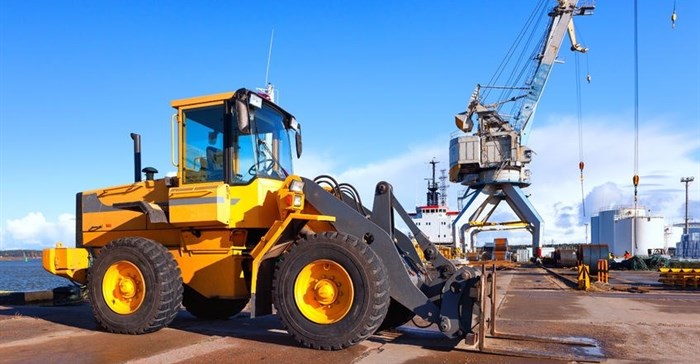
Top stories






More news

Marketing & Media
Ads are coming to AI. Does that really have to be such a bad thing?















Science and Technology Minister Naledi Pandor launched the first fuel cell powered forklift at Impala Platinum Refinery in Springs, near Johannesburg, earlier this year.
During a media tour at the plant on Monday, 24 October, Impala Platinum Chemical Engineer Fatema Haji told SAnews that plans are underway to have more fuel cell powered forklifts manufactured for both the local and international market.
“The aim is to have the project rolled out to cater for both local and the international market,” she said.
Cabinet approved the Hydrogen South Africa (HySA) Strategy in 2007 to create knowledge and enable the development of high-value commercial products in the hydrogen and fuel cell technology sector through beneficiation of the country’s platinum group metal resources.
At its meeting in Parliament last month, Cabinet said the project holds the potential to advance localisation, with a view to strengthen black industrialists.
“This South African innovation involves contributing to international innovation through technology commercialisation, while capturing 25% of the hydrogen and fuel cell market, which translates to R1.37bn in 2020,” it said.
Over the past three years, Implats has provided HySA Systems with funds of R6m to enable the prototype development. Implats plans to use hydrogen fuel cell technology as its main source of energy for material handling and underground mining equipment.
Speaking at the launch earlier this year, Minister Pandor said that fuel cell technologies had the potential to provide access to affordable, safe, clean and reliable energy, which is necessary for broad-based economic development and growth in the country.
"While the fuel cell market is still in its infancy in South Africa, recent developments indicate a growing appetite for the technology," said the minister at the time.
The prototype is a collaborative effort between the Department of Science and Technology through the HySA Systems Centre of Competence based at the University of the Western Cape and Impala Platinum (Implats) through its Impala Refineries in Springs.
According to the Department of Science and Technology, the long-term goal of the project is to integrate metal hydride technologies for on-board hydrogen storage and related applications into utility vehicles, through the development of metal hydride-based system components to be produced in South Africa and supplied to both local and international markets.
The benefits of the metal hydride technology include much longer operational times between refuelling, contributing to a significant increase in productivity.
In contrast, diesel and electric-powered forklifts are refuelled daily, affecting productivity negatively.
The on-board metal hydride storage also allows for the forklift to operate at a low pressure (180-bar), which increases safety, as opposed to most fuel cell vehicles, which operate at 350-bar, requiring a high pressure hydrogen compressor.
Benefiting from the new innovation is the Windsor East Clinic in Randburg. Hydrogen fuel cell unit provides backup power to vaccine fridges and air conditioning units during loadshedding.
According to both the Department of Science and Technology and Impala Platinum, the installation of the fuel unit at the clinic demonstrates the importance of hydrogen fuel cell technology as an alternative energy source for backup power to preserve critical medication for patients.
It is also anticipated that the installation for fuel cell units will be extended to other clinics and schools particularly those in in remote areas.
SAnews.gov.za is a South African government news service, published by the Government Communication and Information System (GCIS). SAnews.gov.za (formerly BuaNews) was established to provide quick and easy access to articles and feature stories aimed at keeping the public informed about the implementation of government mandates.
Go to: http://www.sanews.gov.za